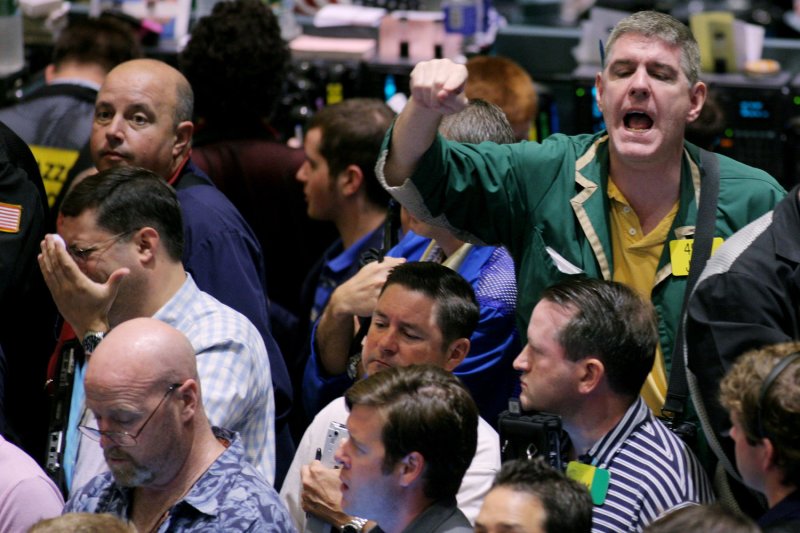Crude oil prices inch lower in early Tuesday trading as OPEC foresees a slow return to market balance. The OECD, meanwhile, reports strong, but lopsided, gains in labor. File photo by Monika Graff/UPI |
License Photo
June 13 (UPI) -- Concerns about disproportionate economic growth and expectations of the slow return to energy market balance bruised crude oil prices early Tuesday.
Crude oil prices notched modest gains in the Monday session as investors looked for an easy way back into the market after Brent crude oil broke through the $50 per barrel floor. The market for crude oil suffered one of the year's sharpest downturns last week after the U.S. Energy Information Administration reported a sizeable buildup in U.S. crude oil inventories, a reversal from a trend that persisted through much of the first half of the year.
Members of the Organization of Petroleum Exporting Countries are leading an effort to balance the market through coordinated production declines. In its monthly market report for June, OPEC reported only four member states posted production declines last month and the return to balance was under way, "but at a slower pace."
Crude oil prices started moving below the $100 threshold two years ago on supply-side concerns. OPEC's expectation of slow balance even with the coordinated effort in 2017 put a negative spin on the markets early Tuesday.
The price for Brent crude oil was down about 0.1 percent to $48.23 per barrel about 15 minutes before the start of trading in New York. The U.S. benchmark for the price of oil, West Texas Intermediate, was lower than the previous close by 0.3 percent to $45.94 per barrel and held its discount to Dubai crude oil, making it competitive in the Asian market.
Elsewhere, the Organization for Economic Cooperation and Development reported the job market in the world's leading economies improved, but gains were lopsided.
"While the jobs gap is closing, many people do not feel the benefits as they are facing stagnant wages and no career prospects," OECD Secretary-General Angel Gurria said in a statement. "We need an inclusive labor market that reconnects the benefits of our economic model with those who work in it."
The OECD added that the share of the population employed, however, should hit 61.5 percent by the end of next year, beating the previous peak of 60.9 percent during the fourth quarter of 2007.
The May unemployment rate in the United States was at its lowest in years, though marginal issues, such as lower hourly wages and a decline in the number of people participating in the labor sector, were disappointing.















